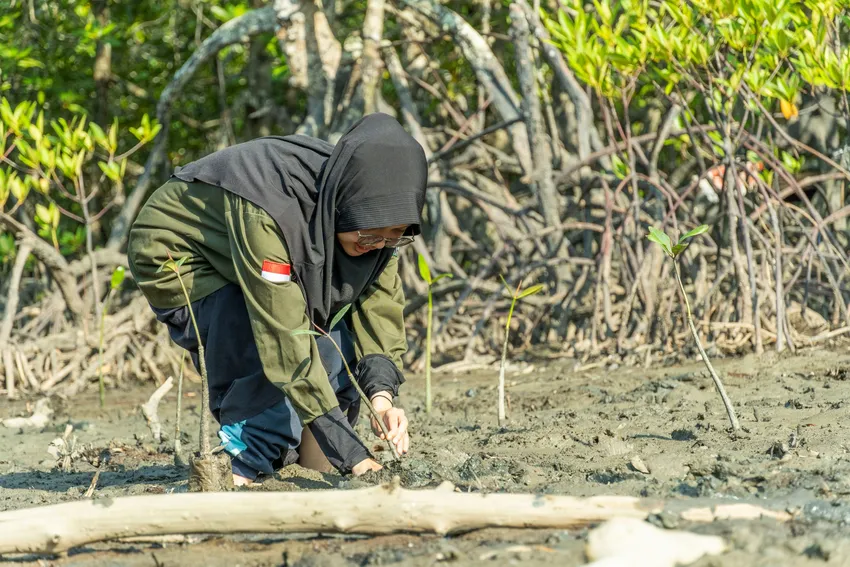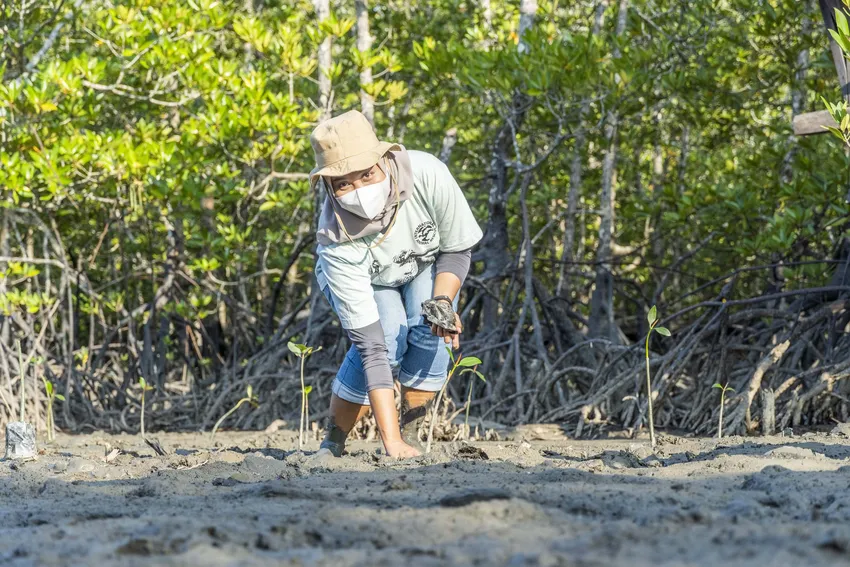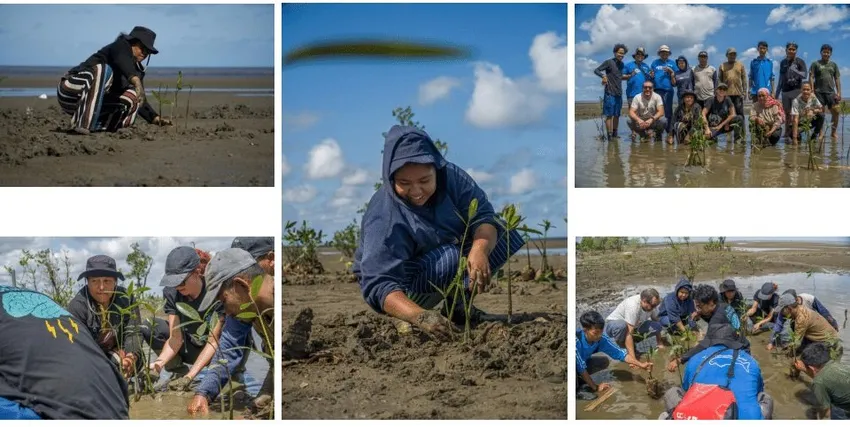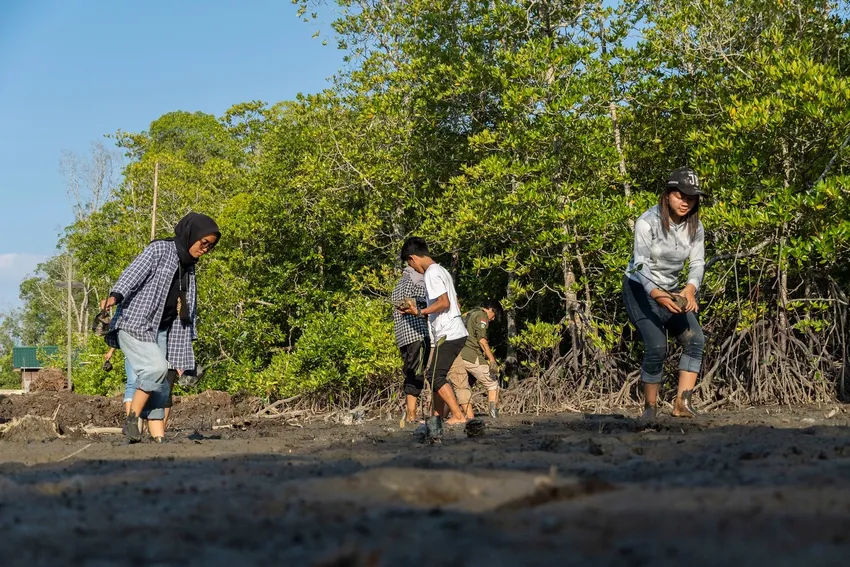A vital restoration project to restore and protect Indonesia’s precious mangrove forests. This project is combatting climate change, empowering women and providing alternative livelihoods to marginalised local communities.
Categories
Beneficiaries
Mangroves are rare, spectacular and prolific ecosystems on the boundary between land and sea. These extraordinary ecosystems contribute to the wellbeing, food security, and protection of coastal communities. They support a rich biodiversity and provide a valuable nursery habitat for fish and crustaceans. Mangroves also act as a form of natural coastal defence against storm surges, saltwater ingress, tsunamis, rising sea levels and erosion. Their soils are highly effective carbon sinks, sequestering vast amounts of carbon. Almost half of Indonesia’s mangroves have been damaged or destroyed due to over-exploitation, deforestation, land reclamation and pollution, land and forest fires and untenable agricultural practices and fisheries. The degradation of mangrove forests is having catastrophic effects on our climate, biodiversity and ecosystems. Mangroves serve as massive carbon storehouses. These rich ecosystems can store up to five times more carbon than any other forest ecosystem and are a natural buffer and cost-effective measure to protect coastal areas and villages.
The coastal communities understand very well the importance of the mangrove forest buffer. As sea levels rise and more extreme weather events occur due to climate change, the risk of seawater destroying crops is very real. The farmers can see that where the mangroves are intact, the land is protected; likewise, there have been entire harvests wiped out due to seawater in areas with degraded mangroves. Previous efforts to safeguard these ecosystems have been limited success - a novel approach is needed. Our holistic restoration project just does that. We aim to promote transformational change towards climate-smart landscapes in peatlands and mangroves, while alleviating the poverty of the local communities, contributing to UN Sustainable Development Goals. The project provides alternative livelihoods to people in the communities, particularly women who collect seeds, grow seedlings, plant the young trees and then tend to them while they get established. The project is supported by IAR’s mangrove experts who are experienced nationals who have a proven track record in mangrove restoration and have built a close working relationship with the communities. The mangrove project is complemented by other community support, such as training on organic farming and sustainable farming practices. All of these actions aim to improve land use and yields for the local community and reduce dependence on the extraction of natural resources.



